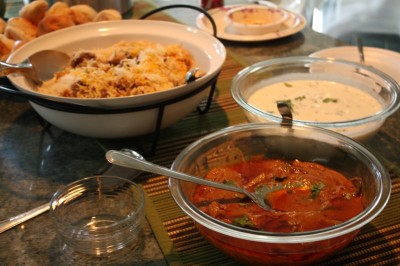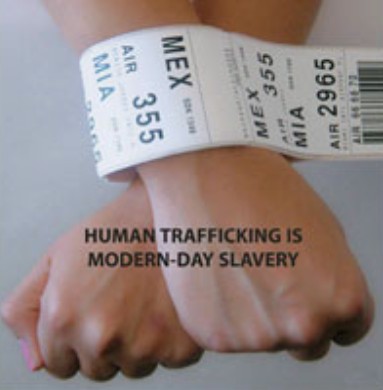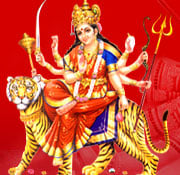 Halloween Day is celebrated as a festival around the world.
Halloween Day is celebrated as a festival around the world.
Especially celebrated by the younger generation, this festival of All Hallowes comes about as a practice followed among the Christian population and has its origins as a Pagan Celtic festival – Samhain. It’s celebrated the night before the Christian Festival of All Saints Day. Adults create laterns for their children made from large pumkins which have been made into ghoulish faces. Children play ‘trick or treat’.
However, in the Nordic countries this is the evening when friends and relatives who have died are remembered. People often go to the cemetary and place lit candles in the snow. The sight of hundreds of candles burning in the dark, illuminated by the white snow is quite a sight.
Find out more about Halloween
Find out more about All Saints Day
guest |
October 26th, 2012
Today is the start of a four-day Muslim festival, Eid-ul-Adha.

Eid-ul-Adha is also known as Feast of the Sacrifice
Eid-ul-Adha is the second most important festival in the Muslim calendar. It is a public holiday in Muslim countries, but not a public holiday in the UK. Most Muslims living in the UK are likely to take one or more days of annual leave at this time.
Eid-ul-Adha commemorates Ibrahim’s will to sacrifice his son when God ordered him to. The story goes that Allah ordered Ibrahim to sacrifice his youngest son as an act of obedience. The devil then appeared to Ibrahim telling him to disobey Allah. Ibrahim ignored the devil. When he was about the kill his son, Allah stopped him and gave him a lamb to sacrifice instead.
This story is also found in the Jewish Torah and in the Old Testament.
Today, Muslims around the world sacrifice a sheep or a goat as a reminder of Ibrahim’s obedience. It is common to sacrifice the sheep at home, but in the UK the animal must be killed in the slaughterhouse.
Eid-ul-Adha is always a great feast. One of the most important things about the festival is sharing. The lamb meat is usually shared among family, friends, and the poor. Helping the less fortunate is also very important during the festival, and many Muslims donate money to charities during Eid.
Eid-ul-Adha also marks the end of the annual Hajj pilgrimage to Mecca in Saudi-Arabia.
Happy Eid Everyone!
guest |
October 24th, 2012
Today is United Nations Day, a day that marks the anniversary of the UN Charter entry into force in 1945.

United Nations Day has been celebrated since 1948.
The charter came into force when France, Republic of China, Soviet Union, United Kingdom, and United States, the five permanent members of he security council, all approved the charter that had been drawn out earlier in the year. The United Nations Day has been celebrated since 1948.
United Nations works together with many specialized agencies, including: the World Health Organization (WHO); the Food and Agriculture Organization (FAO); the United Nations Educational, Scientific and Cultural Organization (UNESCO); the United Nations Children’s Fund (UNICEF); International Labour Organization (ILO); United Nations High Commissioner for Refugees (UNHCR); and United Nations Human Rights Council (UNHRC). So, today is not only to celebrate the United Nations alone, but to highlight all the important international work done in fields of human rights, support in areas of famine, eradication of disease, promotion of health and settlement of refugees.
Read more.. »
guest |
October 22nd, 2012
“We stand at a critical moment in Earth’s history, a time when humanity must choose its future.”
Earth Charter

One World Week highlights the values we have in common.
The theme for One World Week 2012 is “Sharing destiny: Moving towards One World”.
One World Week is a UK development education charity with an aim to raise awareness and understanding of cross-cultural and intercultural issues. The seven-day celebration, One World Week, happens annually in October, but there are smaller events happening all year round.
One World Week focuses on commonalities that cultures, nations, and religions have. Issues that One World Week sees are important for all of us are earth and its resources, justice, equality, peace, and mutual respect. This year’s One World Week theme asks how can we best shape our lives to contribute to an equitable future for all.
Read more.. »
guest |
October 18th, 2012
Today is Anti-Slavery Day, a day to raise awareness of modern day slavery and to inspire people to eliminate it. The transatlantic slave trade was abolished and outlawed in 1807 and slavery is internationally prohibited in the Universal Declaration of Human Rights. However, there is still an estimate of 12.3 million people worldwide forced to work for little or no pay.
The transatlantic slave trade was abolished and outlawed in 1807 and slavery is internationally prohibited in the Universal Declaration of Human Rights. However, there is still an estimate of 12.3 million people worldwide forced to work for little or no pay.
Bonded labour is the least well-known, yet the most common form of modern slavery. Bonded labour, or debt bondage, means that a person’s labour is demanded as a means for repayment for a loan. A bonded labourer often works for no pay, seven days a week. Bonded labour is sometimes passed on for generations and may involve entire families. It is most common in South-Asia, in cottage industries and in factories, but it can also be found in parts of Africa, the Caribbean, and South-East Asia.
Other forms of modern day slavery are forced marriage, child labour, forced labour, slavery by descent, and human trafficking.
Read more.. »
guest |
October 17th, 2012
“Wherever men and women are condemned to live in extreme poverty, human rights are violated. To come together to ensure that these rights be respected is our solemn duty.” Joseph Wresinski, the founder of ADT Fourth World
Today is the International Day for the Eradication of Poverty. Nearly half of the world’s population (that’s three billion people) live on less than $2.5 a day. 1.1 billion people have inadequate access to water and 2.6 billion people live without basic sanitation. Approximately 790 million people in the developing world are still chronically undernourished, almost two-thirds of them residing in Asia and the Pacific. 18 million deaths a year, one third of the world’s deaths, are caused by poverty.
Nearly half of the world’s population (that’s three billion people) live on less than $2.5 a day. 1.1 billion people have inadequate access to water and 2.6 billion people live without basic sanitation. Approximately 790 million people in the developing world are still chronically undernourished, almost two-thirds of them residing in Asia and the Pacific. 18 million deaths a year, one third of the world’s deaths, are caused by poverty.
All the more shockingly, an average cow in the European Union receives more than £1.40 a day in subsidies, which is more than the amount that half the world’s population survives on.
This year’s theme for International Day for the Eradication of Poverty is “Ending the Violence of Extreme Poverty: Promoting Empowerment and Building Peace.” Just like the quote above by Joseph Wresinski, this theme recognizes poverty as a human rights violation, rather than simply as a low income level.
Read more.. »
guest |
October 16th, 2012
Navaratri, one of the greatest Hindu festivals, begins today. Navaratri means ‘nine nights’ in Sanskri. The celebration symbolises the triumph of good over evil and the festivities last for nine days. Navratri takes place at the beginning of October around harvest time.
Navaratri means ‘nine nights’ in Sanskri. The celebration symbolises the triumph of good over evil and the festivities last for nine days. Navratri takes place at the beginning of October around harvest time.
Most Hindus fast during Navaratri and only have a single meal during the day. Despite the fast, food is very important in Navaratri and there are many special Navaratri dishes such as banana chips and aloo raita. Fruits and dairy dishes are very popular, whereas non-vegetarian food is totally avoided during the celebrations. The internet offers several Navartri food and cooking guides. For this year’s Navaratri, India Today suggests a range of “mouth-watering twists” to tradition recipes, that will turn the “fast into a feast.”
Read more.. »
guest |
October 16th, 2012
Today is World Food Day, a day to honor the founding of the Food and Agriculture Organization of the United Nations in 1945.

1.5 billion live on less than $1 a day
World Food Day is a day to consider questions such as: is there enough food for everybody? Why do people go hungry? Are we eating too much? Are we eating too much meat? What is sustainable farming? What is genetically manipulated food?
Food is a basic human right but nearly one in six people around the world do not have enough food to be healthy and to live an active life. Approximately 1.5 billion people live on less than US $1 a day and every 3.6 seconds someone dies of hunger.
The Food and Agriculture Organisation states that hunger is “the most critical manifestation of poverty,” and hunger, “undermines the peace and prosperity of nations and traps individuals in a vicious cycle of poor nutrition, ill health and diminished capacity for learning and work that is passed on from one generation to the next.”
Former Head of the Food and Agriculture Organization, Dr Jacques Diouf, speaks of the connection of hunger and poverty and raises a valid point: “While hunger is a consequence of poverty, the opposite is also true: Hunger causes poverty.”
Read more.. »
guest |
October 15th, 2012
It is estimated that 60% of chronically hungry people are women and girls. Today is International Day of Rural Women, a day that recognizes the vital role of rural women, including indigenous women, in enhancing agricultural and rural development, improving food security and eradicating rural poverty.

60% of chronically hungry people are women.
The day is purposefully held a day before World Food Day in order to highlight the role rural women play in food production.
The International Day of Rural Women was first observed at a significant time in October 2008. 2006, 2007, and 2008 were the years of the global food crisis when prices of staple foods rose dramatically around the world. Although prices declined slightly right afterwards they spiked again in 2010 and have been high since. UN Women Watch writes that food prices are “likely to remain high and volatile over the next decade.”
Poor rural households feel the global crises the hardest. The poorer the household the more its members have to change the way they live to cope with the crises.
Read more.. »
guest |
October 13th, 2012
Today is the International Day for Disaster Reduction (IDDR), a day to encourage every citizen and government to take part in building more disaster resilient communities and nations.

A natural disaster affects everybody.
This year’s theme for IDDR is ‘Women and Girls: The (In)visible Force of Resiliance.’
Margareta Wahlström, a Special Representative of the UN Secretary-General for Disaster Risk Reduction, describes the theme in the following way:
“We know that when women and young girls are involved in planning and decision-making in communities they contribute their fair share to keeping the community safe.
Read more.. »
 Halloween Day is celebrated as a festival around the world.
Halloween Day is celebrated as a festival around the world.




 The transatlantic slave trade was abolished and outlawed in 1807 and slavery is internationally prohibited in the Universal Declaration of Human Rights. However, there is still an estimate of 12.3 million people worldwide forced to work for little or no pay.
The transatlantic slave trade was abolished and outlawed in 1807 and slavery is internationally prohibited in the Universal Declaration of Human Rights. However, there is still an estimate of 12.3 million people worldwide forced to work for little or no pay. Nearly half of the world’s population (that’s three billion people) live on less than $2.5 a day. 1.1 billion people have inadequate access to water and 2.6 billion people live without basic sanitation. Approximately 790 million people in the developing world are still chronically undernourished, almost two-thirds of them residing in Asia and the Pacific. 18 million deaths a year, one third of the world’s deaths, are caused by poverty.
Nearly half of the world’s population (that’s three billion people) live on less than $2.5 a day. 1.1 billion people have inadequate access to water and 2.6 billion people live without basic sanitation. Approximately 790 million people in the developing world are still chronically undernourished, almost two-thirds of them residing in Asia and the Pacific. 18 million deaths a year, one third of the world’s deaths, are caused by poverty. Navaratri means ‘nine nights’ in Sanskri. The celebration symbolises the triumph of good over evil and the festivities last for nine days. Navratri takes place at the beginning of October around harvest time.
Navaratri means ‘nine nights’ in Sanskri. The celebration symbolises the triumph of good over evil and the festivities last for nine days. Navratri takes place at the beginning of October around harvest time.


 Hello, I'm Deborah Swallow and, for the last fifteen years, I've worked in over thirty countries addressing the complexities of people working internationally across multiple cultures, so individuals and organisations alike can gain an authentic competitive edge and win in international markets.
Hello, I'm Deborah Swallow and, for the last fifteen years, I've worked in over thirty countries addressing the complexities of people working internationally across multiple cultures, so individuals and organisations alike can gain an authentic competitive edge and win in international markets. 